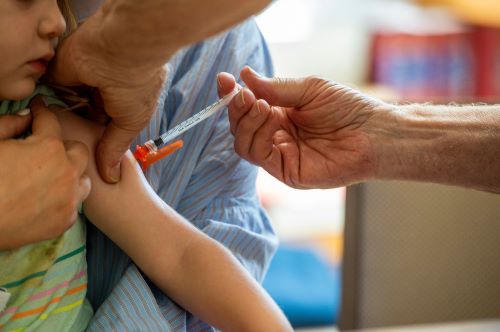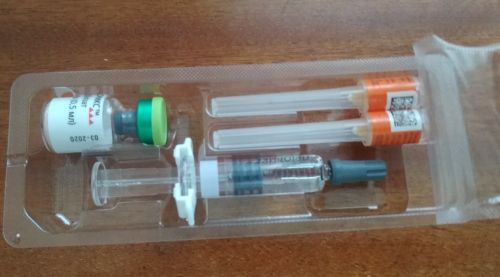

It is a calculated falsehood with roots in fraud and branches in fear.

By Matthew A. McIntosh
Public Historian
Brewminate
Introduction
In the long war between science and misinformation, few battles have proven as persistent—or as deadly—as the myth that vaccines cause autism. It is a theory with no scientific basis, no biological plausibility, and no empirical support. Yet it refuses to die. Like a virus itself, the idea has mutated, spread, and taken root in the cultural imagination. Fueled by a potent combination of fear, anecdote, and distrust, it has morphed into a full-fledged pseudoscientific movement—one that endangers lives and undermines the very foundation of public health.
This myth, in short, is fake science. And like all fake science, it has its architects, its apostles, and its consequences.
The Lie That Launched a Movement
The origin of the vaccine-autism myth can be traced with precision: to a single, now-retracted 1998 study published in The Lancet by British physician Andrew Wakefield. The study, which examined just 12 children, claimed to find a link between the MMR vaccine (measles, mumps, rubella) and developmental regression, including symptoms of autism.¹

Almost immediately, the paper sparked controversy. Scientists criticized its tiny sample size, lack of controls, and speculative conclusions. Over the following decade, investigative journalist Brian Deer would reveal a staggering web of misconduct: Wakefield had been funded by lawyers seeking to sue vaccine manufacturers, had manipulated patient data, and had even performed invasive procedures on children without ethical approval.²
In 2010, The Lancet formally retracted the study, and Wakefield lost his medical license.³ But the damage was already done. Wakefield had ignited a global panic, and no amount of retraction could put out the fire.
The Scientific Consensus: Vaccines Do Not Cause Autism
The scientific community responded with one of the most comprehensive research efforts in the history of public health. Over the past two decades, dozens of large-scale studies—conducted across continents, cultures, and demographics—have conclusively found no link between vaccines and autism.
Among the most notable:
- A 2002 Danish cohort study involving over 537,000 children found no difference in autism rates between vaccinated and unvaccinated groups.⁴
- A 2019 nationwide study in Denmark of more than 650,000 children confirmed those findings and extended them to siblings and family history.⁵
- Meta-analyses involving over 1.2 million children reached the same conclusion.⁶
Moreover, biological plausibility is absent. Vaccines contain no component known to trigger the neurodevelopmental pathways associated with autism. The timeline overlap—children often receive vaccines at the same age when autism symptoms first emerge—has falsely suggested causation where only correlation exists.
Autism: Genetics, Not Vaccines

The causes of autism spectrum disorder (ASD) are complex, but modern science points squarely to genetics and early neural development. Studies have identified over 100 genetic variants linked to increased autism risk.⁷ Twin studies consistently show high heritability, often above 80%.⁸ Environmental factors may play a role, but none of these involve vaccines.
To continue promoting the vaccine-autism link is to ignore not just the science of vaccines, but the science of autism itself. It shifts attention—and funding—away from real causes and effective support for autistic individuals and their families.
The Role of the Internet and Anti-Establishment Culture
In the pre-digital era, pseudoscience had limits. But with the rise of social media, misinformation metastasizes with stunning speed. Platforms like Facebook, YouTube, and TikTok have become fertile ground for vaccine myths. The vaccine-autism claim, in particular, has become a central article of faith for anti-vaccine movements—often overlapping with conspiracist worldviews involving Big Pharma, government mind control, or “medical tyranny.”
What once required academic scrutiny can now be undone by a viral anecdote. A single parent’s tragic—but unrelated—story of their child’s autism diagnosis after vaccination becomes more emotionally persuasive to many than any number of peer-reviewed studies.
And in the age of “alternative facts,” mistrust in expertise becomes a badge of honor.
Consequences Measured in Lives
The consequences are not theoretical. Falling vaccination rates have already led to deadly disease outbreaks:
- The 2019 U.S. measles outbreak—the largest in 25 years—was fueled by communities with high vaccine refusal rates, many citing autism fears.⁹
- In Samoa in 2018, anti-vaccine panic led to a plummet in MMR coverage, resulting in a measles outbreak that killed 83 children.¹⁰
Vaccines are among the most rigorously tested, continuously monitored, and safely administered tools in medical history. To refuse them based on a lie is not just a personal choice—it is a public hazard.
The Ethics of Accountability
It is no longer enough to “debunk” the vaccine-autism myth. The time for polite correction has passed. Those who promote this falsehood are not merely mistaken—they are complicit. They undermine herd immunity. They risk the lives of immunocompromised children. They erode confidence in science and medicine.
And yet, accountability is rare. Wakefield himself, disgraced though he may be, remains a folk hero among some circles—frequently speaking at rallies and featured in pseudoscientific documentaries like Vaxxed.¹¹
A broader cultural shift is required—one that restores respect for expertise, rewards intellectual humility, and holds purveyors of pseudoscience to account.
Conclusion: Truth, Trust, and Public Health
The myth that vaccines cause autism is not merely an error—it is a calculated falsehood with roots in fraud and branches in fear. It is a symptom of a larger crisis: a society increasingly seduced by anecdote over evidence, charisma over credibility.
If we are to meet the challenges of future pandemics, protect vulnerable populations, and rebuild trust in science, we must treat misinformation itself as a contagion. That begins with a clear-eyed recognition of what the vaccine-autism theory really is: a dangerous fiction dressed in the costume of science.
To dispel it is not just a medical necessity—it is a moral imperative.
Endnotes
- Andrew Wakefield et al., “Ileal-lymphoid-nodular hyperplasia, non-specific colitis, and pervasive developmental disorder in children,” The Lancet 351, no. 9103 (1998): 637–641. Retracted 2010.
- Brian Deer, The Doctor Who Fooled the World: Andrew Wakefield’s War on Vaccines (Scribe, 2020).
- General Medical Council, “Fitness to Practise Panel Hearing: Dr. Andrew Wakefield,” May 2010.
- Madsen et al., “A Population-Based Study of Measles, Mumps, and Rubella Vaccination and Autism,” New England Journal of Medicine 347, no. 19 (2002): 1477–1482.
- Hviid et al., “Measles, Mumps, Rubella Vaccination and Autism: A Nationwide Cohort Study,” Annals of Internal Medicine 170, no. 8 (2019): 513–520.
- Taylor et al., “Vaccines are not associated with autism: An evidence-based meta-analysis,” Vaccine 32, no. 29 (2014): 3623–3629.
- De Rubeis et al., “Synaptic, transcriptional and chromatin genes disrupted in autism,” Nature 515, no. 7526 (2014): 209–215.
- Sandin et al., “The Heritability of Autism Spectrum Disorder,” JAMA 318, no. 12 (2017): 1182–1184.
- CDC, “Measles Cases and Outbreaks,” 2019.
- Dyer, Clare. “Measles Outbreak in Samoa Blamed on Anti-vaccine Misinformation,” BMJ 367 (2019): l6745.
- Wakefield, Andrew, dir. Vaxxed: From Cover-Up to Catastrophe, Cinema Libre Studio, 2016.
Originally published by Brewminate, 06.27.2025, under the terms of a Creative Commons Attribution-NonCommercial-NoDerivatives 4.0 International license.


